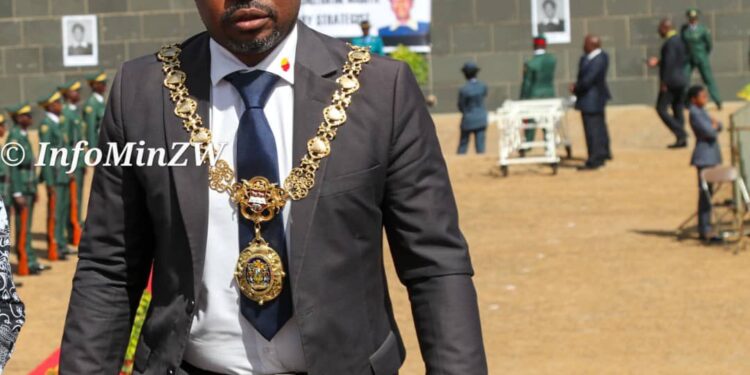The Ministry of local Govt received proposed budgets from all local authorities. From all local authorities, Harare City Council and Hwange Local Board have had their budgets rejected.
There are so several reasons that led to the rejection of City of Harare’s proposed budget. City of Harare is country biggest City but it reportedly failed to meet the requirements by the Ministry.
In a statement seen by newsreportzim.com, the reasons why City of Harare’s proposed budget rejected were revealed below:
All 92 Local Authorities presented their proposed budgets to the respective provincial budget assessment teams. A large number of other Local Authorities have had their budgets approved subject to a number of issues being addressed.
5. Two Local Authorities, Hwange Local Board and Harare City Council have had their budgets rejected outright whilst the majority of Local Authorities have had budgets approved subject to a number of issues being addressed.
6. With respect to the City of Harare, the Ministry wishes to advise that the Council`s budget was rejected for the following reasons:
Enterprise Resource Planning System
a) Harare City Council does not have functional computer based organisational systems (ERP – Enterprise Resource Planning) and this has contributed greatly to low revenue collection. The Parliament of Zimbabwe and Auditor General recommendations to re-instate the previous ERP have not been complied with. Council has continuously failed to procure an ERP for the past 5 years. This has contributed to low revenue collection and consequently poor service delivery. There is no provision in the 2024 budget to address this situation. The 2024 Budget is therefore not an accurate reflection of the revenue generation capacity of the Council.
b) Audited Accounts
Council did not provide solutions in the budget to address recurring audit disclaimers. Section 49 of the Public Finance Management Act stipulates that a Local Authority must be audited on the 31st of May each year. However, Harare City Council is in violation of the aforementioned provision. Council is behind in audits. Financial Statements for 2017, 2018 and 2019 received disclaimer of opinion by the External Auditor, a firm of Chartered Accountants. The disclaimer of opinion means that the External Auditor did not obtain sufficient and appropriate evidence to provide a basis for an audit opinion. The 2024 Budget presented does not indicate any meaningful steps to address this matter.
c) Debts
The City has a huge debtors bill extending to over three years which negatively affects its cash-flow and hence service delivery.
d) Estate funds
Estates Funds are not being managed according to the law. Section 300 of the Urban Councils Act stipulates that proceeds realised from the sale of land are capital funds which should not be used to meet operational costs. City of Harare is not complying with the provisions of this Act.
e) Business Interests
Council has a number of business interests which are undertaken as joint ventures with private companies. The budget review revealed a number of serious corporate governance issues which include: –
a) Non remittance of revenues to Council,
b) Non availability of audited accounts,
c) Commercial/Profit sharing structures which are not clear and
d) Lack of monitoring of the business interests by Council.
This state of affairs has greatly resulted in reduced income levels to the City and consequently poor service delivery. Council has thus not shown how they intend to address the short-comings.
f) Staffing levels
The budget assessment team observed that there is serious overstaffing. This has caused Harare City Council to compare unfavourably to regional cities in terms of employee-resident ratio. Consequently, a significant portion of income is channelled to salaries and not service delivery. No effort has been shown in the budget to rationalise this.
g) Water, Sanitation and Hygiene
Harare City is failing to provide water, sewer and waste removal services. Resultantly a state of emergency was declared in accordance with Section 27(1) of the Civil Protection Act [10:06] through S.I. 140 of 2023, to address the adverse state of environment in the City of Harare. Government had to roll out a blitz clean-up campaign “Operation Chenesa Harare”. The Local Authority’s budget does not address or propose solutions to this serious and recurring issue
Source Newsreportzim.com









